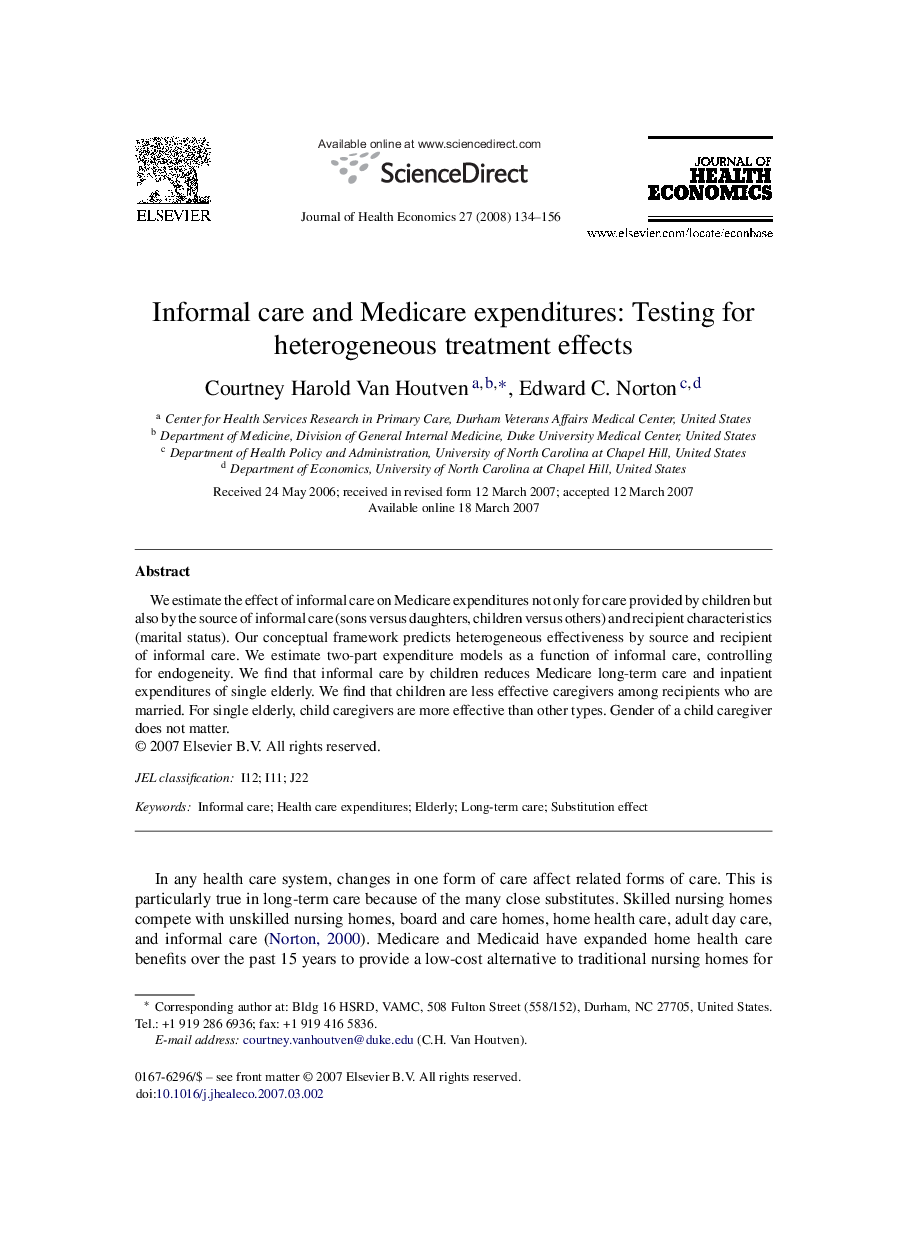| Article ID | Journal | Published Year | Pages | File Type |
|---|---|---|---|---|
| 962163 | Journal of Health Economics | 2008 | 23 Pages |
Abstract
We estimate the effect of informal care on Medicare expenditures not only for care provided by children but also by the source of informal care (sons versus daughters, children versus others) and recipient characteristics (marital status). Our conceptual framework predicts heterogeneous effectiveness by source and recipient of informal care. We estimate two-part expenditure models as a function of informal care, controlling for endogeneity. We find that informal care by children reduces Medicare long-term care and inpatient expenditures of single elderly. We find that children are less effective caregivers among recipients who are married. For single elderly, child caregivers are more effective than other types. Gender of a child caregiver does not matter.
Related Topics
Health Sciences
Medicine and Dentistry
Public Health and Health Policy
Authors
Courtney Harold Van Houtven, Edward C. Norton,
